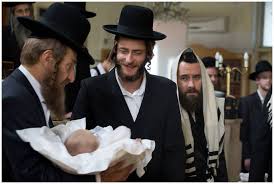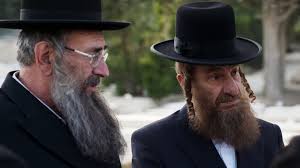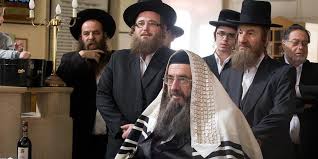Culture
Fans hope for third season of Israeli TV drama and Netflix hit Shtisel
By Jacqueline van den Driest
“Shtisel,” the Israeli TV drama about a haredi - that is, ultra-Orthodox - family has won millions of binge-watching Netflix viewers, in spite of the initial low expectations of its makers. Created and written by Ori Elon and Yehonatan Indursky, the series premiered on 29 June 2013 on Yes Oh and started streaming on Netflix, where it was an immediate hit.

The three principal “Shtisel” actors — Dov Glickman, who played family patriarch Shulem Shtisel; Michael Aloni, who played his son Akiva; and Neta Riskin, who played daughter Giti — and show producer Dikla Barkai seemed as surprised as anyone at their show’s success, while recently on a promotional tour in the USA. They recounted their more modest initial expectations for the show. Aloni said that “Shtisel” did not exactly have the hallmarks of an international hit: There were no sex or car chases. “We all shared this feeling that we were doing something great that no one would watch,” he said.

Yet this quiet show about private family dramas in
But it wasn’t until Netflix picked up the show in December that “Shtisel” got a second life as an international sensation.

“Shtisel” owes its popularity to a superbly written script, excellent acting, compelling characters and rich story lines. There’s also, no doubt, a certain voyeuristic appeal: an opportunity to gaze into a mysterious and cloistered world. For many Jewish viewers curiosity about their haredi kin is probably a significant part of the show’s attraction. More important however is the fact that the show’s themes are deeply relatable: love, longing, loss, fidelity and infidelity, filial and parental responsibility, conformism and rebellion, and dreams, both chased and crushed.
“Shtisel” is fundamentally about its characters’ relationships played out within the confines of their community. The outside world intrudes only sparingly — the American soap operas enjoyed by Shulem’s mother, much to her pious son’s dismay; the overheard roar of a military air show on Israeli Independence Day; the “damned evil people,” a phrase invoked by Shulem’s brother Nuchem to decry unseen but hostile outsiders.
Audiences in
Stories for you more +